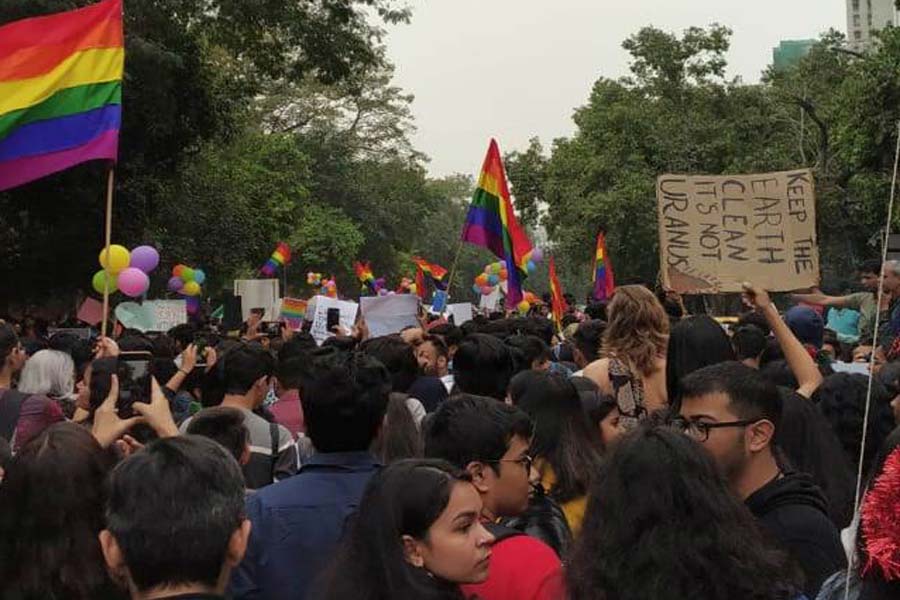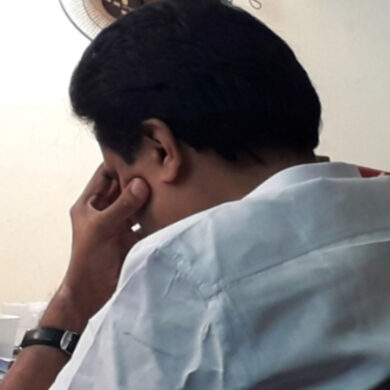We as a society do not know and neither are we eager to learn the nuances of sex, gender, or the experiences of those at the margins of these categories. The alarming thing is that this apathy is reflected in the language which our legislature speaks. Our state has, quite unsurprisingly, deemed it fit to not listen to the voices of the major stakeholders while introducing the Transgender Persons (Protection of Rights) Bill, 2019.
It is, in fact, a misnomer: the trans act is not in the best interest of trans people; it is against them. This is the most shameful irony of our times–the people most affected by a law are the last ones to be consulted before making major decisions on the rules to govern their bodies.
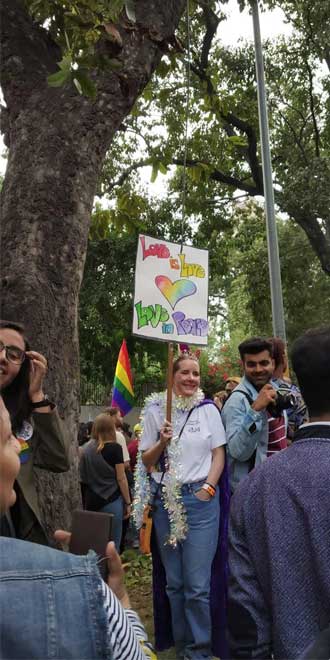 Our legislative and judiciary abound in biopolitics. The state implicitly recognises that the best way to be in control of a large population is to have power over their bodies. This is why custodial rape is so frequent in India. The state has codified and non-codified ways of asserting control over bodies of its citizens, especially those from historically oppressed groups. The trans act is a codified attempt–one to be enshrined in our rulebooks, to inflict the contempt of our ‘civil society’ on trans persons.
Our legislative and judiciary abound in biopolitics. The state implicitly recognises that the best way to be in control of a large population is to have power over their bodies. This is why custodial rape is so frequent in India. The state has codified and non-codified ways of asserting control over bodies of its citizens, especially those from historically oppressed groups. The trans act is a codified attempt–one to be enshrined in our rulebooks, to inflict the contempt of our ‘civil society’ on trans persons.
The 2014 NALSA judgement ordained for reservation of trans-people in public education and jobs. It also declared the trans identity as a third gender in addition to the categories of woman and man. It further recognised that Indians have the right to choose their gender and be entitled to fundamental rights. The Trans Act has defied all these clauses. It does not specify affirmative action to discourage discrimination against trans persons when it comes to housing, employment, education, and other rights. The right to self-determination includes the right to choose one’s gender identity, for which the Trans Act necessitates a two-step process. One has to first appeal to the district magistrate of their place of stay for a “transgender certificate”, following which the certificate holder shall apply for another document to certify their change of gender. This step can be undertaken only when one has proof of sex reassignment surgery. A hospital has to provide such evidence for the district magistrate, who must be satisfied with the correctness of the said certificate. This implies that the right to determine the gender of a person is now directly held by the state. It is no longer restricted to the public lives of citizens, but has now come to have a hold over our bodies.
Further, the rape or sexual assault of a cisgender woman may bring punishment for up to seven years, while the same crime, when perpetrated against a trans person, may result in punishment for only up to two years. It is almost like trans persons have to achieve personhood in distinct steps. This is a glaring revelation about how differentially the state perceives dignity for cisgender and the trans person.
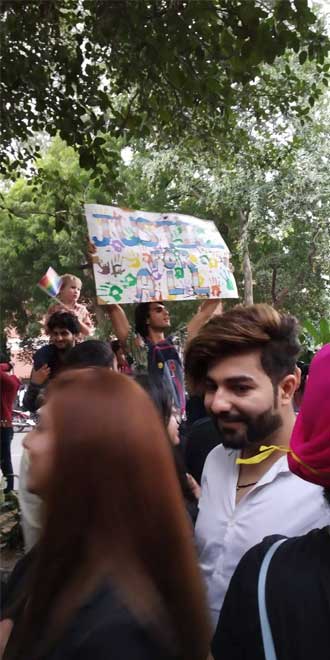 Punishment is supposed to be a psychological deterrent to crime in modern society; the fact that less punishment is guaranteed for violating the body of a trans persons depicts that these lives are seen as dispensable in the eye of the state. Thus, the effect of this law is going to manifest in the psyche of a potential criminal. The Act demonstrates how the state machinery fails to understand gender fluidity or legitimise it. The state has committed an act of frivolous conflation of sex and gender in the process of passing this law. Sex and gender are two distinct categories–the former is a biologically assigned category which manifests in physical features of a person, while the latter is the identity one chooses for oneself. Sex need not determine gender. The law, however, by entailing that one needs to undergo an operation to determine one’s gender, implicates that sex is a determinant of gender. For legislations on the protection of trans persons, our lawmakers seem to be completely ignorant of the famous distinction made between sex and gender by Ann Oakley in 1972. Ever since the bill was introduced in 2016, it has received substantial criticism from the LGBTQ+ community and allies. None of the voices of the trans community in the country, which, according to the 2011 census, comprises roughly over half a million members, have been heard.
Punishment is supposed to be a psychological deterrent to crime in modern society; the fact that less punishment is guaranteed for violating the body of a trans persons depicts that these lives are seen as dispensable in the eye of the state. Thus, the effect of this law is going to manifest in the psyche of a potential criminal. The Act demonstrates how the state machinery fails to understand gender fluidity or legitimise it. The state has committed an act of frivolous conflation of sex and gender in the process of passing this law. Sex and gender are two distinct categories–the former is a biologically assigned category which manifests in physical features of a person, while the latter is the identity one chooses for oneself. Sex need not determine gender. The law, however, by entailing that one needs to undergo an operation to determine one’s gender, implicates that sex is a determinant of gender. For legislations on the protection of trans persons, our lawmakers seem to be completely ignorant of the famous distinction made between sex and gender by Ann Oakley in 1972. Ever since the bill was introduced in 2016, it has received substantial criticism from the LGBTQ+ community and allies. None of the voices of the trans community in the country, which, according to the 2011 census, comprises roughly over half a million members, have been heard.
They have been urging for a Select Committee to be consulted in amending the bill, but no heed was paid to this. The Act encourages trans-people to live with their biological families, with utter disregard of the reality that most of the violence, exclusion and trauma for many in the community sprouts at home. There are alternate forms of family where members feel more comfortable.
The act is a massive step back from the series of judicial developments such as NALSA judgement in 2014, ruling for self-determination in the choice of gender, and the historic Supreme Court judgement in 2018 legalising all kinds of private consensual acts of sex, including homosexual ones. The legal right to express gender identity is a very basic right, prescribed by a series of international laws like the many United Nations agencies, the World Professional Association of Transgender Health, and so on.
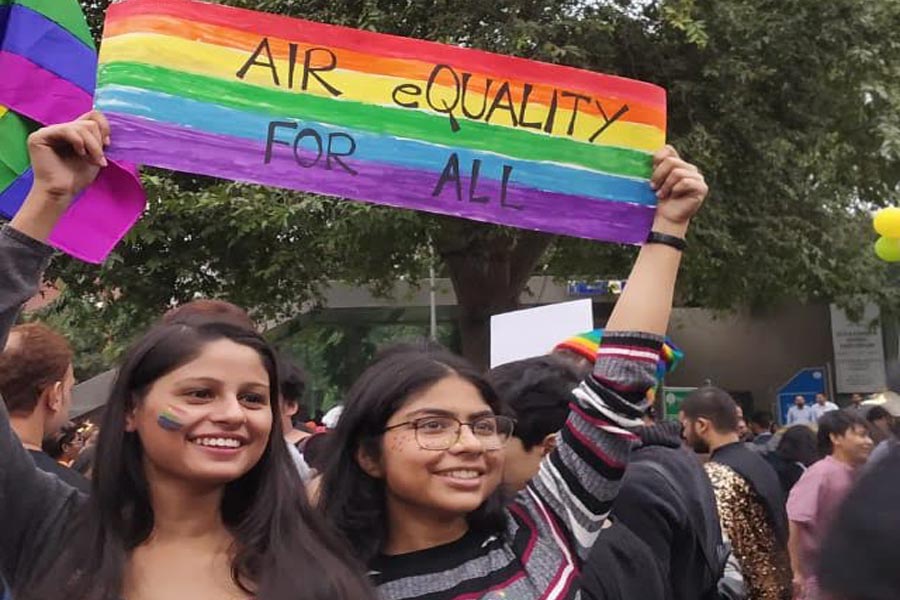
The regressive law not only forces trans persons to undertake the often expensive surgery, but also reinforces gender as a binary of female and male, each of which one has to conform to. It leaves no space for fluidity. The implications of the recent act on the mental health of trans people and intersex people is enormous. It does not in any way protect their rights, but further pushes them to even more perilous circumstances.
The brazen act of passing the law barely two days since the Delhi Pride Walk, where citizens colourfully and peacefully demonstrated against it, affirms how little the state cares about its citizens at the margins of gender and sexual identity. It is the most recent example of how the voices of the country are being systematically silenced. Trans-activists and allies are planning to challenge the act soon, but will these voices be heard in the graveyard of dissent that the Indian legislation has become?
Images: Delhi Pride Walk; Pic credit: Saumya






